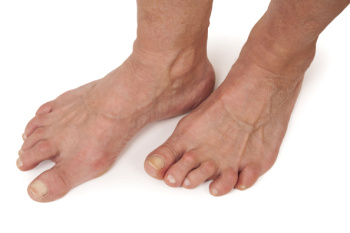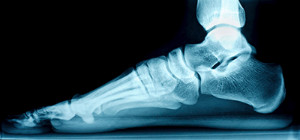
Rheumatoid arthritis, or RA, can manifest in various parts of the body, including the feet, where early detection is vital for effective management and prevention of complications. One common sign of RA in the feet is joint stiffness, particularly in the morning or after periods of inactivity, which can make walking and movement uncomfortable. Swelling and tenderness in the affected joints, often accompanied by warmth and redness, are also indicative of RA. Deformities such as bunions, hammertoes, and claw toes may develop as the condition progresses, altering the foot's structure and causing further discomfort. Additionally, RA can lead to nodules or lumps under the skin, typically around pressure points like the heels or toes. Changes in gait or difficulty in walking due to foot pain and stiffness are further indications of RA involvement. If you are experiencing symptoms of RA that are affecting your feet, it is suggested that you visit a podiatrist who can offer you relief and treatment strategies.
Because RA affects more than just your joints, including the joints in your feet and ankles, it is important to seek early diagnosis from your podiatrist if you feel like the pain in your feet might be caused by RA. For more information, contact one of our podiatrists of Foot Health Center of Merrimack Valley. Our doctors will assist you with all of your podiatric concerns.
What Is Rheumatoid Arthritis?
Rheumatoid Arthritis (RA) is an autoimmune disorder in which the body’s own immune system attacks the membranes surrounding the joints. Inflammation of the lining and eventually the destruction of the joint’s cartilage and bone occur, causing severe pain and immobility.
Rheumatoid Arthritis of the Feet
Although RA usually attacks multiple bones and joints throughout the entire body, almost 90 percent of cases result in pain in the foot or ankle area.
Symptoms
- Swelling and pain in the feet
- Stiffness in the feet
- Pain on the ball or sole of feet
- Joint shift and deformation
Diagnosis
Quick diagnosis of RA in the feet is important so that the podiatrist can treat the area effectively. Your doctor will ask you about your medical history, occupation, and lifestyle to determine the origin of the condition. Rheumatoid Factor tests help to determine if someone is affected by the disease.
If you have any questions please feel free to contact one of our offices located in North Andover, and Tewksbury, MA . We offer the newest diagnostic and treatment technologies for all your foot and ankle needs.








